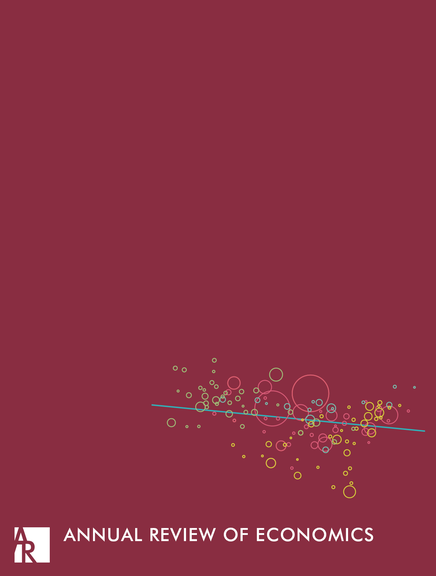认知局限:偶然思维的失败
IF 11.4
2区 经济学
Q1 ECONOMICS
引用次数: 2
摘要
近年来,实验证明了一种导致利润最大化失败的新机制:偶然思维的失败(FCT)。本文总结了关键的实验结果,阐明了FCT的构成,并概述了如何在其他环境中测试FCT。随后,我们将fct与行为经济学中关于认知限制的最新理论工作联系起来。最后,我们将fct与应用环境中记录的次优行为联系起来。本文章由计算机程序翻译,如有差异,请以英文原文为准。
Cognitive Limitations: Failures of Contingent Thinking
In recent years, experiments have documented a new mechanism that leads to failures of profit maximization: the failure of contingent thinking (FCT). This article summarizes key experimental findings, clarifies what constitutes an FCT, and outlines how FCTs can be tested in other environments. Subsequently, we relate FCTs to recent theoretical work on cognitive limitations in behavioral economics. Finally, we connect FCTs to suboptimal behavior documented in applied environments.
求助全文
通过发布文献求助,成功后即可免费获取论文全文。
去求助
来源期刊

Annual Review of Economics
ECONOMICS-
CiteScore
9.70
自引率
3.60%
发文量
34
期刊介绍:
The Annual Review of Economics covers significant developments in the field of economics, including macroeconomics and money; microeconomics, including economic psychology; international economics; public finance; health economics; education; economic growth and technological change; economic development; social economics, including culture, institutions, social interaction, and networks; game theory, political economy, and social choice; and more.
 求助内容:
求助内容: 应助结果提醒方式:
应助结果提醒方式:


